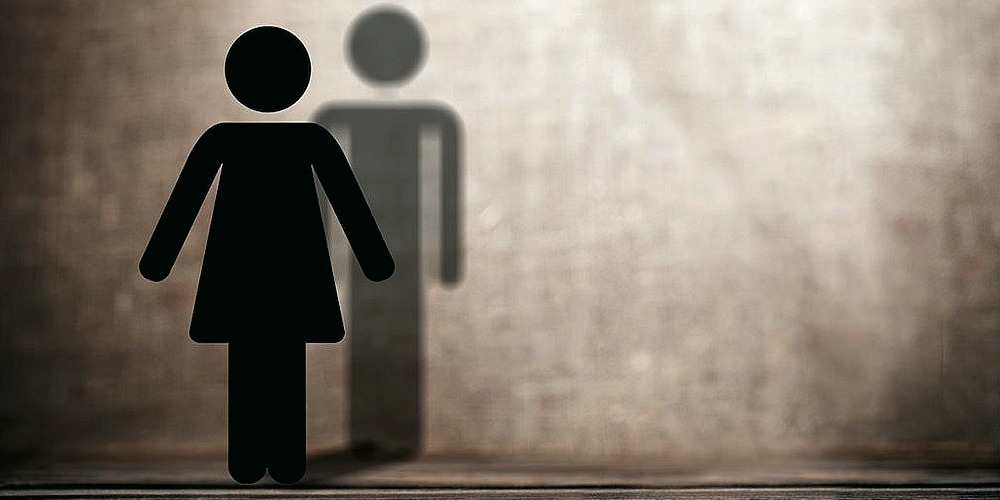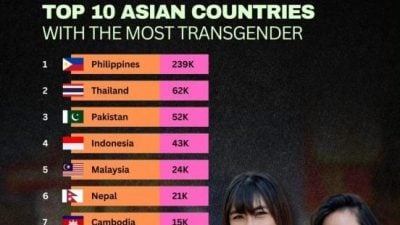PARIS: As a small but growing number of countries move to make it easier for people to change gender, physically and legally, others are making it harder, most recently Russia.
Russia’s lower house of parliament on Wednesday moved to ban medical and legal gender reassignment.
AFP takes a look at the situation around the world.
Making life harder in Russia
Russian lawmakers on Wednesday approved in first reading a bill that bans “medical interventions aimed at changing the sex of a person” and “the state registration of a change of gender without an operation,” the Duma website said.
It says the government will determine a list of allowed interventions “related to the treatment of congenital physiological anomalies in children.”
President Vladimir Putin has repeatedly railed against transgender rights in his speeches.
And parts of the US
Restricting gender-affirming treatment such as puberty blockers for minors has become a major campaign of US conservatives.
In early June, Texas became the latest Republican-controlled state to ban physicians and health workers from offering transition-related treatment to transgender minors.
A dozen other states, including Florida, whose Governor Ron DeSantis is running for president in 2024, have passed similar laws in recent months.
But several other states, Colorado, Illinois and New Mexico have taken steps to protect access to access to gender-affirming care for children.
‘Un-Islamic’ in Pakistan
Pakistan’s religious judiciary in May ruled that landmark transgender legal protections are un-Islamic and therefore void.
The bench struck out the definition of a transgender person enshrined in law, also undoing their right to state documents like passports and inheritance proceedings matching their self-ascribed gender identity.
The court said according to Islamic teachings “the gender of a person is subject to the biological sex of a person.”
Pakistan however continues to allow its citizens to register a “third gender.”

Tighter rules in Sweden
Sweden, one of the world’s most liberal countries, was the first in the world to authorize physical and legal gender reassignment for adults in 1972.
But last year it began restricting hormone therapy available for children diagnosed with gender dysphoria, such as puberty blockers, citing the need for caution following a strong increase in demand.
It also restricted access to mastectomies for teenage girls wanting to transition.
Finland in 2020 had already restricted hormone treatment for minors.
Hungary ban
Anti-LGBT sentiment in Hungary has escalated during the rule of Viktor Orban’s right-wing government.
In May 2020, the country passed a law making it impossible for transgender people to change their name and gender on their ID documents.
Making life easier
Argentina has led the way on transgender rights, allowing a change of gender on national ID cards with a simple declaration since 2012.
Several Latin American countries have followed suit.
Denmark was the first European country in 2014 to allow adults to apply for a gender change without undergoing medical or psychological assessments, with Malta, Ireland, Norway, Belgium and Portugal following suit.
In Spain in February, lawmakers adopted a bill that allows anyone aged 16 and over to change their gender on their ID card. Minors as young as 14 can apply with the permission of their parents or legal guardians.
In June 2022, the German government unveiled plans to introduce similar changes.
France allows transgender people to change their status on their ID documents without treatment or surgery but they must receive court approval.
The ‘third gender’
Some countries have long recognized a third gender that is neither male nor female.
In South Asia, which has a history of tolerance of “hijra” (people designated as male at birth but who identify as female), Pakistan in 2009 became one of the first ever to legally recognize a third gender, followed by Nepal in 2013 and India in 2014.
In 2018, Germany legalized a third gender on birth certificates to cover the cases of intersex people, born with both male and female sex characteristics.
And the US in April 2022 made it possible for travelers to choose a gender neutral “X” on passport applications, instead of male or female.
ADVERTISEMENT
ADVERTISEMENT







-400x225.jpg)


-纳因莫达-aspect-ratio-1600-900-768x433-1-400x226.jpg)





























